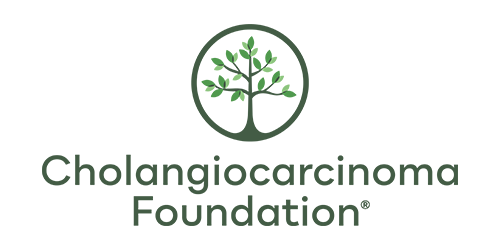Clinical Trials > All Submitted Clinical Trials
It is not the intention of the Cholangiocarcinoma Foundation to provide specific medical advice. We provide website users with information to help them better understand their health conditions and the current approaches related to prevention, diagnosis, treatment and supportive care. You are urged to always seek the advice of your physician or other qualified healthcare provider.
Now Enrolling
The phase II portion of this trial studies how well peposertib (a drug that may stop the growth of tumor cells by blocking some of the enzymes needed for cell growth) works with avelumab and hypofractionated radiation therapy in treating patients with hepatobiliary malignancies that have spread to other places in the body (advanced/metastatic).
Read MoreChemotherapy-induced peripheral neuropathy (CIPN) is a highly prevalent and severe side-effect of platinum-based chemotherapy, often used to treat gastrointestinal cancers. There are very limited treatments for CIPN. This is a phase II randomized controlled trial to test the preliminary efficacy of exercise vs. nutrition education on CIPN.
Read MoreThis trial evaluates a new drug, LSTA1, or placebo when added to gemcitabine, cisplatin, and durvalumab as a potential new treatment for metastatic or unresectable cholangiocarcinoma or gallbladder carcinoma patients.
Read MoreThis phase I trial studies the side effects and effect of pressurized intraperitoneal aerosolized chemotherapy (PIPAC) nab-paclitaxel in combination with gemcitabine and cisplatin in treating patients with biliary tract cancer that has spread to the peritoneum (peritoneal metastases).
Read MoreStudy Name TS–PERIO–02 ClinicalTrials.gov Identifier (if applicable) NCT05220722 Clinical Trial Category (check all that apply) Beyond First Line Therapy Immunotherapy Other Novel Therapy Study Center Institution Name MD Anderson Cancer Center City Houston State Texas Country United States List additional Institutions (include address, phone number, and website) Rhode Island Hosptial at Brown University of Colorado…
Read MoreFF-10832 encapsulates gemcitabine in a liposome, which is believed to improve the delivery of the medicine to the tumor. The current part of this study is evaluating FF-10832 in patients with biliary tract cancer (cholangiocarcinoma or gallbladder cancer) that has either spread to other parts of the body or can’t be removed completely with surgery.
Read MoreCRESTONE is an open label, multicenter ph 2 trial of seribantumab in adult patients with NRG1 fusion-positive locally advanced or metastatic solid tumors who have progressed on or are nonresponsive to treatment. The trial will enroll previously treated patients across three cohorts no matter what prior treatments have been received.
Read MoreThis is a Phase 1 clinical trial using modified macrophages obtained via apheresis, given intravenously without preparative chemotherapy, for patients with advanced HER2 over expressing solid tumors including cholangiocarcinoma.
Read MoreEarly phase 1 study evaluating the safety of autologous dendritic cells (immune cells generated from patients’ own white blood cells, grown in a special lab, and trained to stimulate the immune system against the tumor) and a vaccine (Prevnar) in treating patients with liver cancer that cannot be removed by surgery after undergoing radiotherapy.
Read MoreTC-210 T cells are a novel cell therapy that consists of autologous genetically engineered T cells expressing a single-domain antibody that recognizes human Mesothelin, fused to the CD3-epsilon subunit which, upon expression, is incorporated into the endogenous T cell receptor (TCR) complex.
Read More